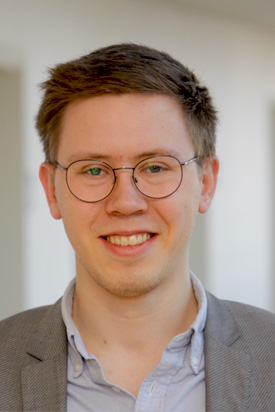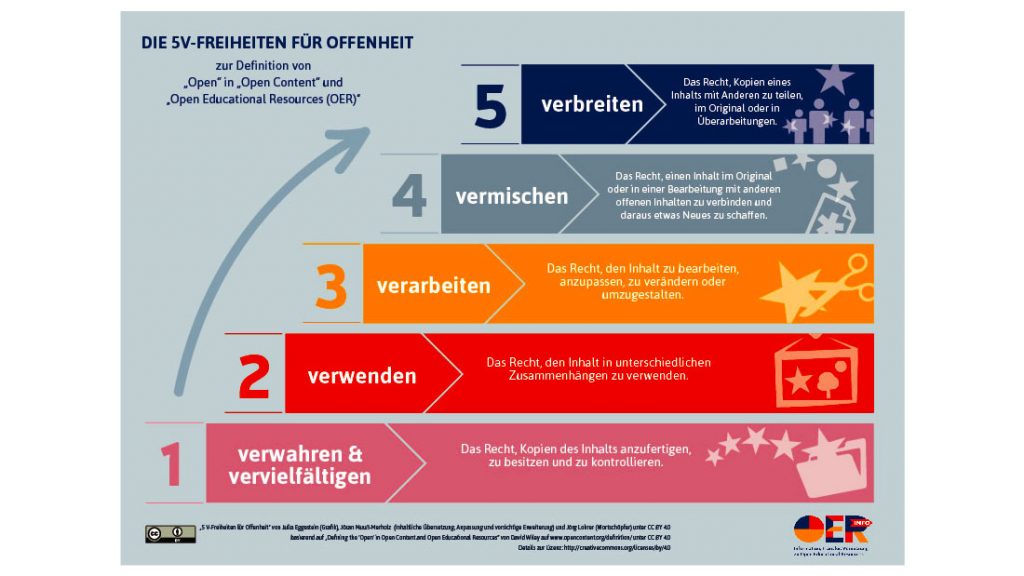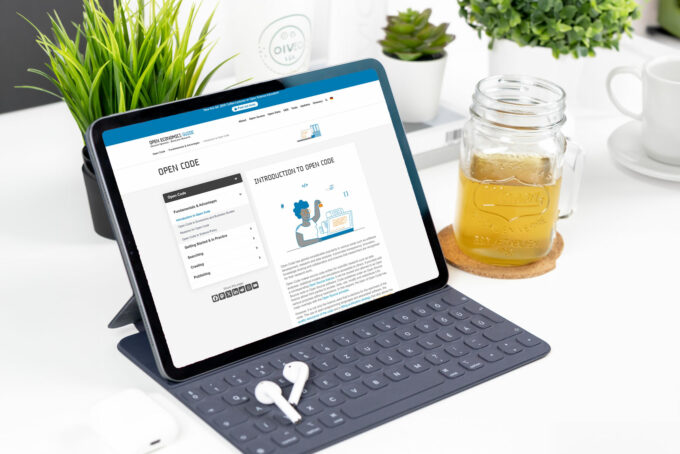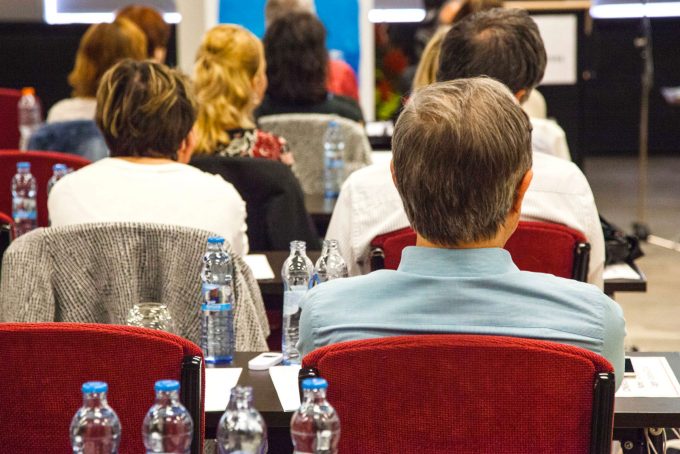
Promoting OER: How to Create an Open Textbook
How is a textbook developed as an open educational resource and how should open educational resources be promoted? In this interview, Dr Maximilian Heimstädt reports on his experiences in the production of the OER textbook `Organising Openness´ on the one hand, and on his research findings regarding the organisation of openness and the promotion of open science on the other.
 Dr Maximilian Heimstädt University is working in a team on a textbook dealing with the topic of “Organising Openness” as an open educational resource (OER). In this interview, he introduces the book project “Organizing Openness: Concepts and Cases” and reports on his experiences and research findings.
Dr Maximilian Heimstädt University is working in a team on a textbook dealing with the topic of “Organising Openness” as an open educational resource (OER). In this interview, he introduces the book project “Organizing Openness: Concepts and Cases” and reports on his experiences and research findings.
Who is the OER textbook “Organizing Openness: Concepts and Cases” intended for and which topics are dealt with?
Our university textbook deals with questions relating to open organisations and organising openness. At the heart of the textbook are six chapters on the theoretical “concepts” of openness and six chapters on empirical phenomena “cases”. We deal with concepts such as transparency, participation or inclusion. The phenomena we deal with include open source communities, open innovation projects and open government initiatives. This modular breakdown is supposed to enable students to develop a differentiated understanding of open organisations.
The textbook is an experiment with openness in many respects. We are therefore also trying to make it as open as possible in terms of disciplines and compatible with these different disciplines. The textbook is primarily aimed at students studying business administration, with majors in management, organisation and strategy in particular. However, large parts of the book will also be of interest to teachers and students of other social sciences. I am thinking, for example, of sociology or educational, political and administrative sciences.
How do you organise the creation of the “textbook”?
I am not writing the textbook alone, but rather together with Prof Dr Leonhard Dobusch from Innsbruck University. We are supported by our student assistants Hanna-Sophie Bollmann and Milena Leybold. Most recently, the textbook project was also supported by an OpenScienceFellowship from Wikimedia Germany, the Volkswagen foundation and the “Stifterverband”.
The book not only deals with openness as an organisational principle, but is also openly organised itself. The finished book chapters will be published as OER in succession using the project blog “Organizing Openness” until the entire textbook is openly available online. The book writing process is documented as transparently as possible using the blog. Before we publish a “final” version of each chapter on the blog, we post the manuscript online for community feedback. Our first chapter concerning “Open Science & Education” is currently posted online – awaiting feedback.
What new things did you learn about OER in the process?
Quite a few! I have mainly researched OER to date and have developed scenarios for the systematic promotion on the part of government. Writing the textbook has changed my perspective and I am now creating OER myself on a larger scale for the first time ever. One of my most significant learning experiences: Openness does not hurt! OER newcomers are initially drawn to licenses time and again which exclude changes or the use of the content for commercial purposes (for instance CC BY-ND or CC BY-NC). The reason for this are fears of misuse – but in my opinion such fears are of a purely theoretical nature. These fears can be banished unequivocally. On the contrary: Advertising is still needed today, even for truly open teaching and learning materials available under licence online (in the sense of the 5 V freedoms – link in German).

Our first book chapter is available on the Internet, but we have still not been overwhelmed by community feedback. OER is still a pioneering initiative.
What recommendations would you give to potential OER authors?
In addition to the licensing of their own content in as open a manner as possible (described in our book chapter on open science & education it is definitely worthwhile to network with other OER newcomers and experts. I myself was at an OER event in Berlin for the first time in 2014 and have been attending conferences and festivals such as the OER camps ever since. OER now stands for a community in which people exchange ideas and help each other. The “Open educational resources in German-speaking countries” Facebook group is also very active.
OER are formally defined by open licenses, but in the end they are much more than that. This is why the community also prefers to speak of open educational practices. This should illustrate that everyone needs to find their own everyday strategies for dealing with OER, especially in interactions between students and teachers. OER can also be used for classical teacher-centred learning, but it is much more exciting to combine the open material with “remix” experiments.
How could the emergence of OER be promoted even further?
Here we have to distinguish between OER in higher education – like our textbook – and OER in schools. In the higher education sector, the topic of OER should be dealt with during postgraduate education. Young scientists create a great deal of slide decks and other educational materials. Due to rapid staff turnover, these scientists are unfortunately often forced to start “from scratch”. If this material could be found openly available under licence online, it would save these scientists a great deal of effort, which they could in turn devote to their own training and research.
OER could be promoted even more extensively in schools. Together with Leonhard Dobusch, I have recently developed several OER scenarios for North Rhine-Westphalia (NRW).
Skip to PDF contentFor example, we consider the targeted public invitation to tender and pre-financing of OER books to be promising. Usage-based refinancing of OER books, comparable to the model of copyright collecting societies such as GEMA, would also be conceivable. The widespread availability of OER textbooks could also be achieved by linking textbook approval in NRW to an OER clause.
What should be done to open young people’s minds to science even more and to promote open science in your opinion?
I think it is important to introduce the topic of open science as early as undergraduate studies, at the latest during scientific training. The best way to do this is to experiment with openness practices in a protected environment. I also consider it an important step to acknowledge and value open science efforts in job placement and contract negotiations as a commitment to better teaching and further development of our own specialist community. Explicitly, failed open science experiments must also be included in this process, because ultimately openness is not an end in itself, but a means.
Dr Maximilian Heimstädt (@heimstaedt) is a postdoctoral researcher at the Reinhard-Mohn Institute for Corporate Management, Witten/Herdecke University. He is interested in how organisations deal with the ever-increasing demands for transparency and utilise this creatively in some instances. He is currently conducting research on the regulation of algorithmic decision-making systems and is committed to the promotion of open educational resources in schools and during participation in academic activities.
View Comments

Academic Journals: How Open Access, Peer Review and the like are Shaping New Journal Concepts
The editorial offices of academic journals constantly find themselves torn between...



